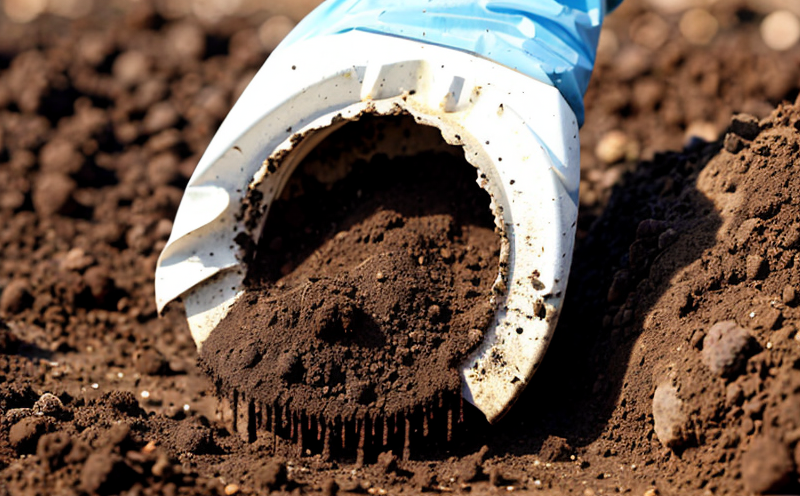Soil Quality & Contamination Testing
In today’s rapidly evolving industrial and urban landscapes, understanding soil quality is crucial. Soil serves as a foundation for sustainable development, agricultural productivity, and environmental health. However, soil can become contaminated from various sources such as industrial activities, waste disposal, and agricultural practices. Accurate testing of soil quality helps in assessing the extent of contamination and ensuring compliance with regulatory standards.
Our laboratory specializes in comprehensive soil quality and contamination testing services designed to meet stringent environmental regulations worldwide. We employ advanced analytical techniques to identify pollutants like heavy metals, pesticides, organic compounds, and other contaminants that could pose risks to human health and ecosystems. Our services are tailored towards meeting the needs of industry professionals, regulatory bodies, and research institutions.
For our clients in the construction sector, understanding soil quality is essential for site selection and foundation design. In agriculture, accurate soil testing can optimize crop yields by identifying nutrient deficiencies or excesses. For environmental managers, reliable contamination assessments are vital for remediation planning and compliance monitoring. By leveraging our expertise in this area, we support decision-making processes that prioritize both short-term operational efficiency and long-term sustainability goals.
Our approach ensures not only accurate measurement but also actionable insights through detailed reports and recommendations based on findings. This comprehensive service allows stakeholders to make informed decisions about how best to proceed with projects while minimizing potential adverse impacts on the environment.
Scope and Methodology
| Test Parameter | Description |
|---|---|
| Pesticides & Herbicides | Detection of commonly used agricultural chemicals to assess potential leaching into groundwater. |
| Heavy Metals (e.g., Lead, Cadmium) | Evaluation of concentrations that may pose risks to human health and ecological systems. |
| Persistent Organic Pollutants (POPs) | Identification of long-lasting contaminants like PCBs which can accumulate in the food chain. |
| Bacteria & Pathogens | Detection of microorganisms that could indicate contamination from sewage or agricultural runoff. |
| Phosphorus & Nitrogen Levels | Evaluation to determine if levels are within acceptable ranges for maintaining healthy soil structure and preventing eutrophication in nearby water bodies. |
International Acceptance and Recognition
The importance of accurate soil quality testing cannot be overstated, especially given its role in global environmental policies. Our laboratory adheres to international standards such as ISO 17025 for proficiency in calibration and testing, ensuring our results are reliable and internationally accepted.
Our methodologies comply with guidelines set forth by organizations like the European Union (EU), United States Environmental Protection Agency (EPA), and World Health Organization (WHO). This ensures that our clients receive consistent, high-quality data regardless of location. Compliance is critical not only for regulatory adherence but also for building trust among stakeholders.
By aligning ourselves with these global benchmarks, we contribute to the broader effort towards sustainable development practices across industries. Our commitment to accuracy and reliability helps safeguard public health while supporting responsible environmental stewardship.
Environmental and Sustainability Contributions
Evaluating soil quality plays a pivotal role in achieving sustainability goals by providing essential information for informed decision-making processes. Through our testing services, we contribute to reducing risks associated with contaminated sites, promoting responsible resource use, and supporting the development of cleaner production methods.
Our work directly impacts various sectors including agriculture, construction, and manufacturing, helping them adopt practices that protect natural resources while enhancing productivity. For instance, in agricultural applications, our testing can help farmers reduce chemical inputs where unnecessary, thereby decreasing pollution risks downstream. In urban planning contexts, accurate soil assessment supports smarter infrastructure development which minimizes disruption to existing ecosystems.
Additionally, by supporting compliance with environmental laws and regulations, we play a crucial part in preventing harmful activities that could lead to long-term damage. Ultimately, our services contribute positively towards creating a more sustainable future where both economic growth and ecological balance are maintained.





